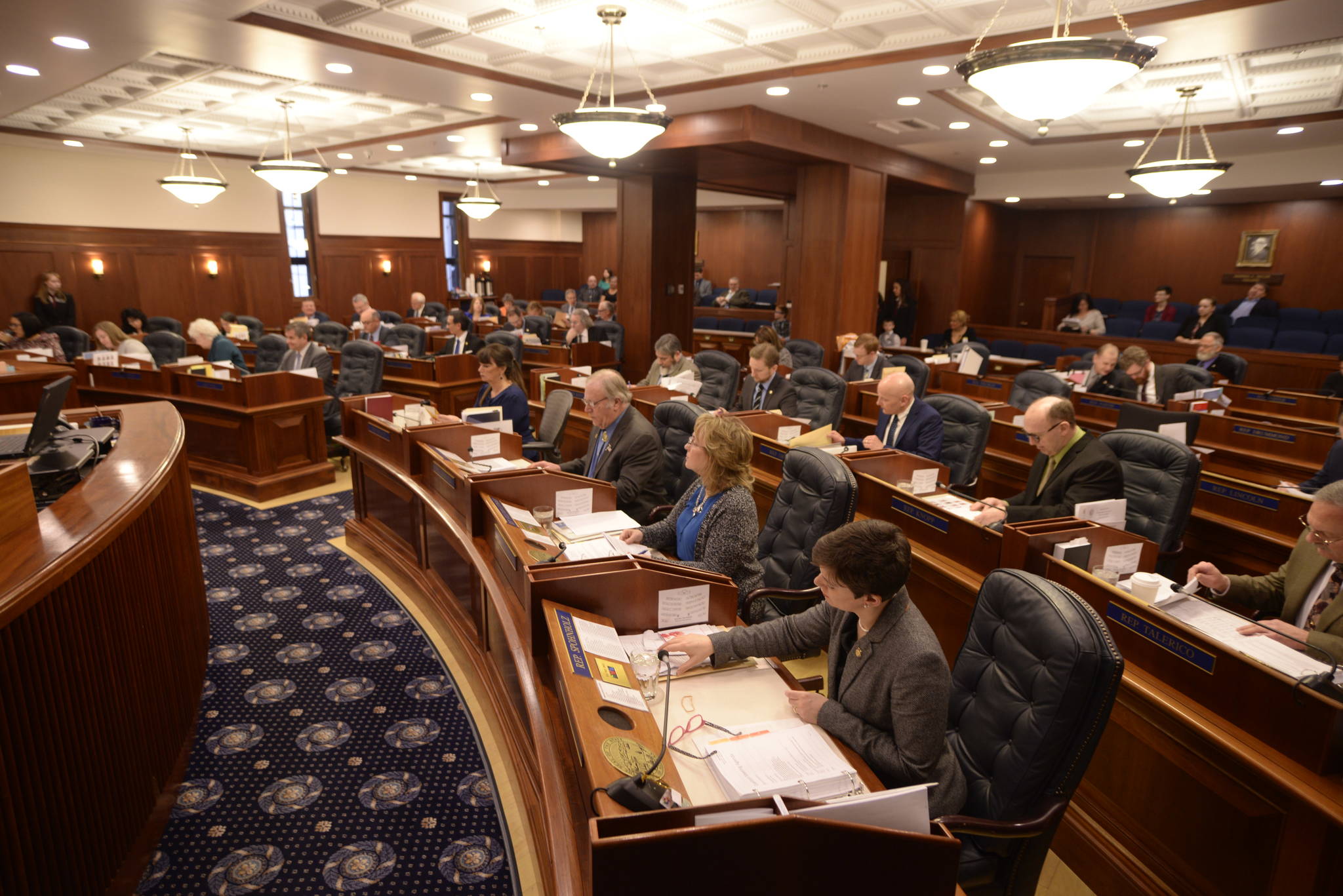The Alaska House of Representatives begins debate today on amendments to Alaska’s proposed $11.3 billion state spending plan, but lawmakers still don’t have an agreement on how to pay for it.
“Obviously we have a $2.5 billion deficit, and that’s up for debate on how we cover that,” said Rep. Jason Grenn, I-Anchorage.
“I think both sides agree that a draw (from the Alaska Permanent Fund) — a structured draw — has to be part of any fiscal plan, but for right now we’re going to be talking about the details of the budget for the next week,” he added.
The budget proposed for fiscal year 2019 (which starts July 1) is bigger than the $10.2 billion budget lawmakers approved last fiscal year, but the amount of the increase is misleading without a look at the details.
Since Gov. Bill Walker released his proposal in December (and an amended version in February), lawmakers’ biggest change is a billion-dollar item affecting the proposed trans-Alaska natural gas pipeline.
Walker’s original proposal would have allowed the Alaska Gasline Development Corporation to sign investment deals of any amount. The revised budget under consideration by the Legislature limits the corporation to $1 billion without additional Legislative approval.
Because the state budget is a document that defines what is allowed to be spent in the coming year (as opposed to what’s actually spent), that limit shows up in the budget as a $1 billion increase in spending. That’s even though the money won’t exist (and thus can’t be spent) unless AGDC finds an investor.
“We wanted a check and balance, and that’s the only way to do it,” said Rep. Tammie Wilson, R-North Pole and a member of the House Finance Committee.
If the Legislature had permitted AGDC to accept investment deals of any amount, the budget headed to Representatives today would look much like the one proposed by Walker.
According to documents from the nonpartisan Legislative Finance Division, the draft budget under consideration on the House floor differs by only $75 million from the governor’s proposal, if the billion-dollar pipeline authorization is ignored.
There’s only a $37 million difference in “unrestricted general fund” spending, a term that refers to spending paid for with state taxes (mostly oil taxes) rather than directed fees, federal money and the Alaska Permanent Fund.
“This budget is somewhat inflation adjusted from last year, but no more than that,” said Rep. Les Gara, D-Anchorage and vice-chairman of the House Finance Committee.
The biggest difference in unrestricted general fund spending between the governor’s proposal and the one headed to the floor today is a $19 million boost for the University of Alaska.
That would give the university $336 million in unrestricted general fund spending: more than the $317 million proposed by the governor, but less than the $341 million requested by the university’s board of regents.
“The people of the state of Alaska deserve it and need it,” said Rep. David Guttenberg, R-Fairbanks and the lawmaker who suggested the increased funding.
He said the Legislature “determines through its policies where we want to go as a state,” and he believes Alaskans want a university that trains Alaskans well for Alaska careers and keeps the state as the top Arctic research center in the country.
The budget also includes $1 million more for the state’s public defenders, something added by Grenn after hearing urgent warnings from Quinlan Steiner, head of Alaska’s Public Defender Agency.
“I think it’s a mostly, really fair budget that protects the services that I value and a lot of Alaskans value,” Grenn said, speaking about the budget in general.
Other changes of note
• Gov. Bill Walker requested 41 new state employees to deal with a backlog of public assistance applications (including some as old as four years); the House version of the budget makes those positions temporary for three years.
• $20 million has been cut from the Alaska Senior Benefits Payment Program because House Bill 236 includes funding separate from the operating budget for that program.
• Walker’s budget proposed giving the Alaska Department of Health and Social Services unlimited authority to accept federal money and shift money around in the department to deal with Medicaid expenses; the House limited that shifting ability to $20 million.
• A partially funded prosecutor job in Anchorage has been fully funded; and one new attorney would be added to the Fair Business section of the Alaska Department of Law.
• Contact reporter James Brooks at jbrooks@juneauempire.com or 523-2258.

